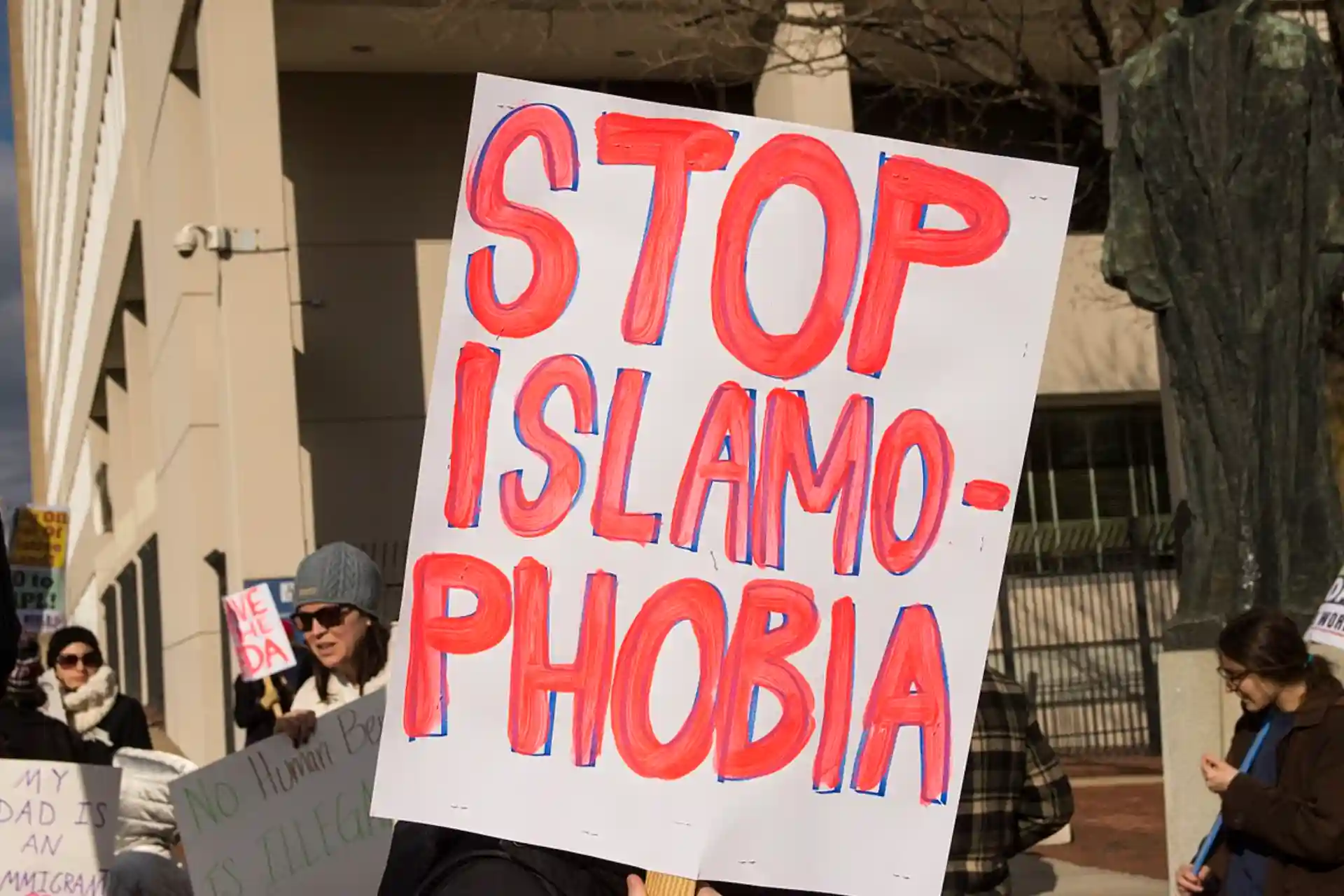15.03.2025 16:20
986
Day Against Islamophobia: Is it all Trump's fault?
The re-election of US President Donald Trump is not the only event that has led to the rise of Islamophobia in the world, but is the result of the work done by the enemies of Islam so far. For decades, certain individuals, politicians, think tanks and the media, who have influenced the public, have contributed to the spread and deep-rooted Islamophobia. The normalization of Islamophobia has paved the way for right-wing extremist ideas to enter the political mainstream. Ideas that were once exclusively characteristic of right-wing extremist groups have now become the norm for Western governments. Moreover, the rise of Islamophobia has not been limited to the electoral success of right-wing parties; other parties have also contributed to this process to a certain extent.
In the summer of 2024, before Trump was re-elected, the UK was hit by a major wave of Islamophobic attacks. The violence erupted after a baseless rumor spread that “a Muslim refugee had murdered three young girls.” Mosques were attacked, Muslims were physically assaulted in the streets, and a refugee hostel was set on fire. Until then, many people had considered Britain a relatively safe country for Muslims in the West. Recent events have disillusioned even those who held such views.
Later, the lie that had fueled the anti-Muslim hysteria was revealed: the girls' killer was neither a refugee nor a Muslim, but a British Christian. Unfortunately, there was no way to undo the events: it revealed the extent of Islamophobia in the region.
Islamophobia is not just a phenomenon promoted by individuals or right-wing extremist groups. It is fueled by media owners, tech billionaires, and right-wing politicians. Demolitions of homes in occupied Palestine and India, the misuse of mosques in China, the burning of the Quran, the banning of the call to prayer, and violence against women who wear the hijab in Muslim and non-Muslim countries are all echoes of this systemic problem.
Trump's re-election has made it even clearer what steps need to be taken to address this problem. After the events in Gaza, even the most indifferent observers have realized that the US and the European Union are not reliable defenders of human rights. Trump's second term has shown that right-wing extremism has become a stable trend and will not disappear on its own.
Islamophobia has become a unifying factor for ethnic nationalists around the world, a tool to justify apartheid and genocide. It has also created fertile ground for professional manipulators to operate under the guise of journalists or truth-tellers. Ignorance or indifference are no longer excuses. Rather than endless debates over the definition of Islamophobia, there is a growing need for concrete action to eradicate it.
There are claims that Islamophobia is a misguided reaction to the actions of Muslims, or that if non-Muslims understood the truth of Islam, the problem would disappear. However, Islamophobia is not a matter of faith, but a form of racism directed against the Muslim identity. Targeting people because of the way they dress, the food they eat, the place they live, or the ideology they support is one of the main mechanisms of Islamophobia. It does not matter whether the person is a devout Muslim or not. Because acts of discrimination target the Muslim identity, not the faith.
Global solidarity against Islamophobia
A large-scale public awareness campaign is now needed. This campaign must recognize that Islamophobia is not a religious difference, but a form of racism, and must focus on its impact on society. However, such a campaign cannot be successful without recognizing that Islamophobia is a state project. Today, many governments and state institutions are supporting the spread of Islamophobia, rather than combating it. Islamophobia is not only a state policy in Tel Aviv, Delhi or Paris, but also some member states of the Organization of Islamic Cooperation are among its active promoters.
These regimes not only fund Islamophobic individuals, criminal groups, and think tanks, but also create platforms for Islamophobic leaders and make secret deals to perpetuate these policies. Many authoritarian leaders believe that by betting on Islamophobia, they can avoid becoming targets of leaders like Trump and thus prolong their rule indefinitely.
Public diplomacy and traditional diplomatic efforts are vital to effectively countering Islamophobia.
This requires a coordinated approach and the creation of an international coalition against Islamophobia. Such a coalition would bring together human rights organizations, media networks, media outlets, social media platforms, and governments that recognize the threat of Islamophobia. These actors have the potential to act together, raise public awareness, demand meaningful policy change, and challenge the system that allows Islamophobia to spread globally.
The fight against Islamophobia is the responsibility of all people, not just Muslims.
This fight requires broad, international cooperation and an effective strategy to succeed. The most important aspect of this process is not what steps are taken, but who takes them. In this way, with strong collective will, the deep-rooted structures of Islamophobia can be shaken and justice restored.
Salman Sayyid, Academician, University of Leeds



